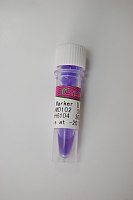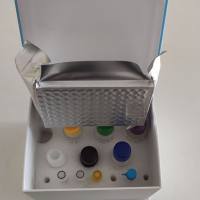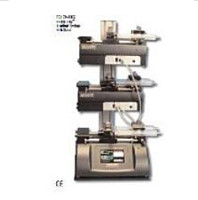Photochemical Enhancement of DNA Delivery by EGF Receptor Targeted Polyplexes
互联网
551
Photochemical internalization (PCI) is a physico-chemical targeting method that enables light directed delivery of nucleic acids into cells. The technology is based on photosensitizers that localize in the membranes of endocytic vesicles. A light activation of the photosensitizers induces photochemical reactions that lead to rupture of the vesicular membranes. This results in the release of endocytosed compounds (e.g., nucleic acids) into the cell cytosol. Physico-chemical and biological targeting techniques can be combined to promote efficient and specific gene delivery to target cells. The present protocol describes PCI of epidermal growth factor receptor (EGFR)-targeted DNA polyplexes. The DNA polyplexes made are small (50-100 nm in diameter), and they contain polyethylenimine (PEI) conjugated with the EGF protein as a cell-binding ligand for EGFR-mediated endocytosis and polyethylene glycol (PEG) for masking the polyplex surface charge. PCI of such targeted PEG-PEI/DNA polyplexes enables high and EGFR-specific gene transfer activity in cells. Although describing in detail PCI of DNA polyplexes, the methodology presented in this protocol is also applicable for PCI of other gene therapy vectors (e.g. viral vectors), peptide nucleic acids (PNA), small interfering RNA (siRNA), and for vectors targeted to alternate cell surface receptors. Generally, PCI can be applied whenever 100% survival of the treated cell population is not required.









